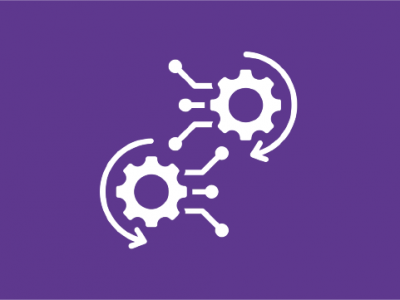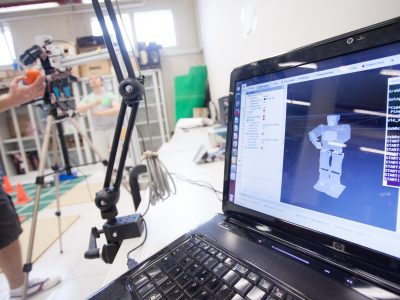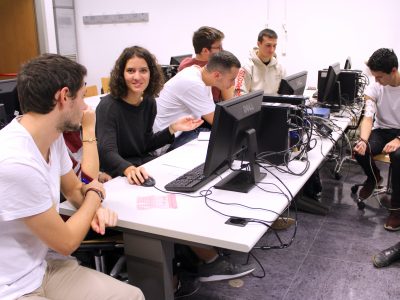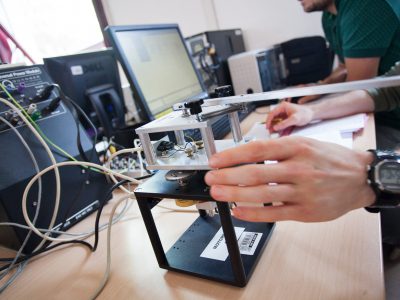



OPEN ACCESS
There is no closed number.
The TOLC-I test is, however, necessary to verify competences in access
After the graduation
37% works
75% continues studying
Data from Almalaurea 2019
The degree course in Automation and Systems Engineering aims at training professionals able to operate in the fields of design, implementation, and management of control systems and, more in general, in the area information engineering in the most diverse production and service contexts.
This degree has a distinctly multidisciplinary character but focuses on the themes of automation and control systems, providing tools suitable for dealing with a wide spectrum of applications in the fields of automation, robotics, industry 4.0, and machine learning.
Extensive and in-depth methodological knowledge is acquired both in basic subjects and in those typical of the ICT area, related to programming, processing and transmission of signals, development of electronic components and modeling and control of systems. Design skills will also be developed in the most innovative technological fields, which include modern techniques of automation, data analysis and machine learning, robotics and computational vision. The course includes a rich offer of laboratory or application courses to put into practice the theoretical notions acquired, and to face the challenges of modern professions in the sector. The course of study also prepares for a subsequent master’s degree in the ICT sector.
The typical professional fields for graduates in this course are those of innovation and development of production, design, planning and programming, management of control and signal processing systems, both as freelance professionals and in manufacturing or service companies, as well as in public administrations. Graduates will be able to find employment in companies operating in the fields of automation, information technology, electronics, bioengineering, telecommunications, both in Italy and abroad.
1°YEAR (Mandatories)
- Analisi 1
- Fondamenti di informatica
- Inglese B2
- Algebra lineare e geometria
- Fisica 1
- Architettura degli Elaboratori
2°YEAR (Mandatories)
- Analisi 2
- Elementi di Fisica 2
- Calcolo delle probabilità
- Teoria dei Circuiti
- Segnali e sistemi
- Machine Learning
- Systems Laboratory
- Elettronica
3°YEAR (Mandatories)
- Controlli automatici
- Telecommunications
- Analisi dei Sistemi
- Control Laboratory
- Introduction to Robotics
3°ANNO (Free choice)
At least 15 CFU (2 o 3 units) fra:
- Automazione Industriale
- Dati e Algoritmi
- Ottimizzazione su Reti
- Metodi numerici per l’ICT
- Microelectronics Laboratory
- Internet and Multimedia Laboratory
- Bioengineering Laboratory
- Signals and Measurements Laboratory
- Azionamenti Elettrici
Admission to the degree course in Computer Engineering requires passing an Entrance Test. This is the TOLC-I test, which is the same for all engineering courses and is conducted by computer, in the University’s computer rooms or other accredited university premises.
The test consists of 2 parts: general + English language
President: M. Santagiustina
Vice-president: S. Canazza Targon
Study plans: S. Canazza Targon, L. Schenato
Direct contacts:
For general information, please write to: international@dei.unipd.it